Get the weekly SPARTANAT newsletter.
Your bonus: the free E-Book from SPARTANAT.
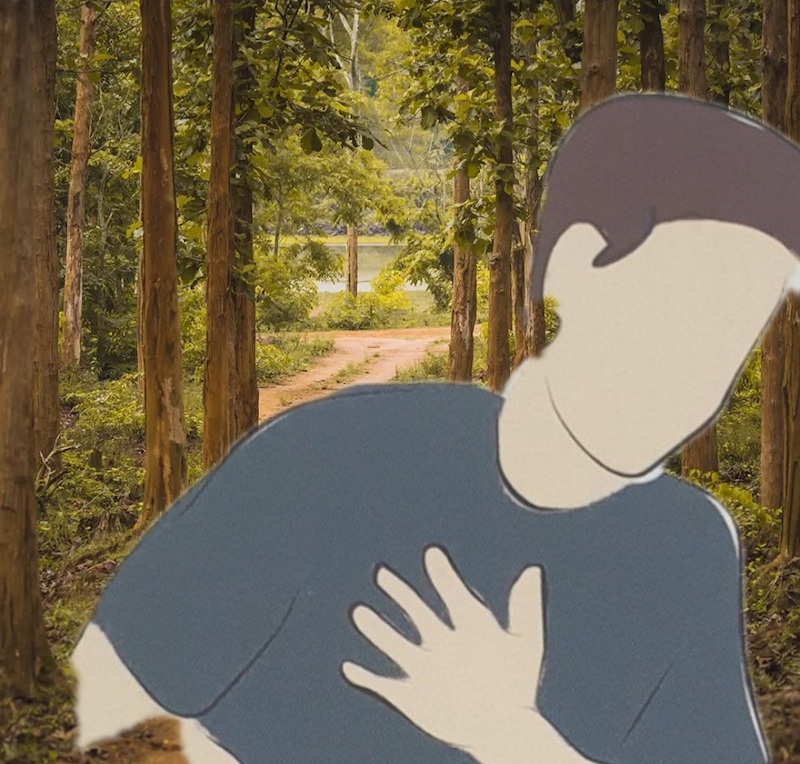
No matter which training programs you currently look at, supposedly everywhere is training for the so-called "worst case scenario", the ultimate emergency. Basic assumption: He who can handle difficult situations will have no problem with easy ones. Basically a true statement.
But does this really correspond to reality or is it often just a generic fashion topic that is imposed on every target group in the same way? Training in what is currently in vogue and looks sexy, but perhaps losing sight of reality?
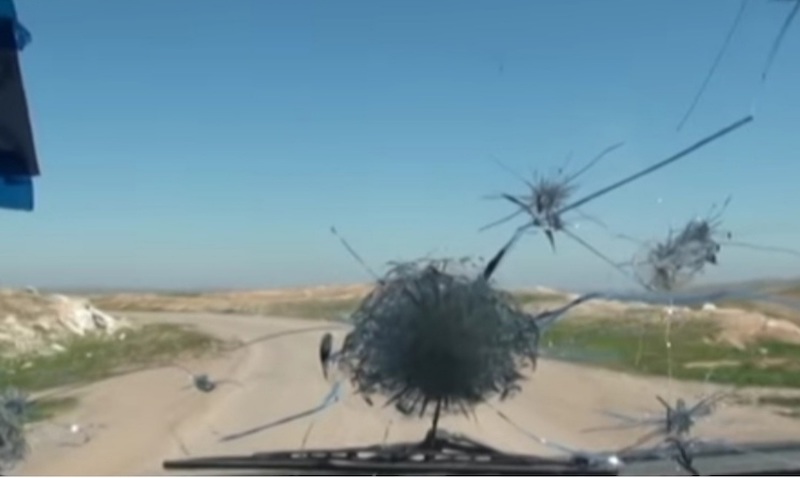
The Capsarius Academy has set itself the task of taking a closer look at topics that are hyped in the scene mainstream and to critically question them.
When I look at the programs and contents of various providers for "Tactical or Remote Medicine", I often find the focus on bleeding control, the "Stop the bleed" concept. While this may be the most important life-saving measure in case of serious trauma caused by gunshot wounds, explosions from IEDs, etc., let's be honest, how often will these types of scenarios occur in the daily life of a professional first responder inside and outside of Germany?
In everyday life, there are hardly any booby traps, gunshot wounds, or leg amputations
This is where I want to start. Although I have been professionally and privately traveling to crisis, war, or remote areas of the world many times, the number of injured/wounded described above due to such triggers was limited. They occurred, but the probability of encountering patients of a different origin was much higher for me. So, in the context of my training seminars, specifically for civilian audiences, I have always emphasized the sentence that the chance of encountering a dehydrated person with a history of diarrhea is much higher than providing care to a mine accident victim with a leg amputation.
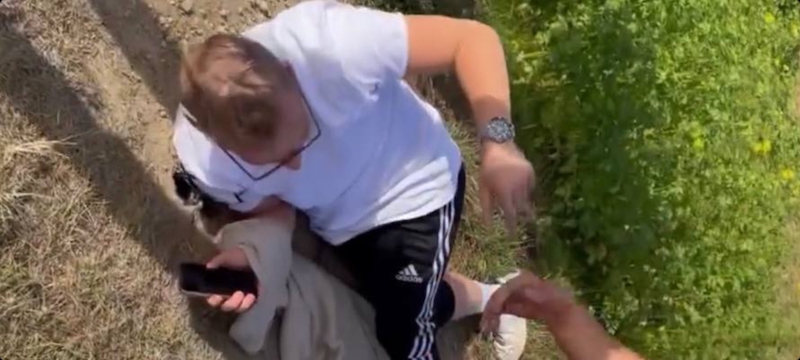
At first glance, this may sound a bit simplistic or far-fetched, but reality shows us that the training concepts of even large organizations seem to only know black and white. A prime example is the German Armed Forces with the transition of their general First Aid training (Assistant in Medical Service), moving away from general first aider towards Einsatzgersthelfer Alpha. Training in resuscitation, treatment of general medical conditions was reduced in favor of pure trauma care using tourniquets and bandages, or at least significantly shortened. Almost as if: as a Bundeswehr soldier, I almost exclusively encounter severe injuries with massive bleeding. As I said, a healthy mix of both topics would have likely covered the reality of potential medical emergencies better. Yes, I know all this happened as the mission in Afghanistan became bloodier, and trauma care was seen as the focus of medical training. The removal of the motorcycle helmet as a superfluous negative example was always cited as the justification for this decision.
The challenge of first aid in deployment starts with everyday problems
Let's take another target group, that of professional personal protection officers. Similar patterns can be observed here. Trauma care after shooting or attack. This may again be correct if I orient myself to the motto of the so-called "worst case". But again, the question of reality and perception arises. What is the likelihood that a protectee develops an internal medical problem versus sustaining a gunshot wound? Especially older age groups, such as business owners or politicians, are often pre-ill with internal conditions and can quickly find themselves in a precarious situation somewhere abroad, triggered by climatic or other travel circumstances. But what about the ability of most personal protection officers to recognize, treat, and take further steps in the event of an internal crisis?
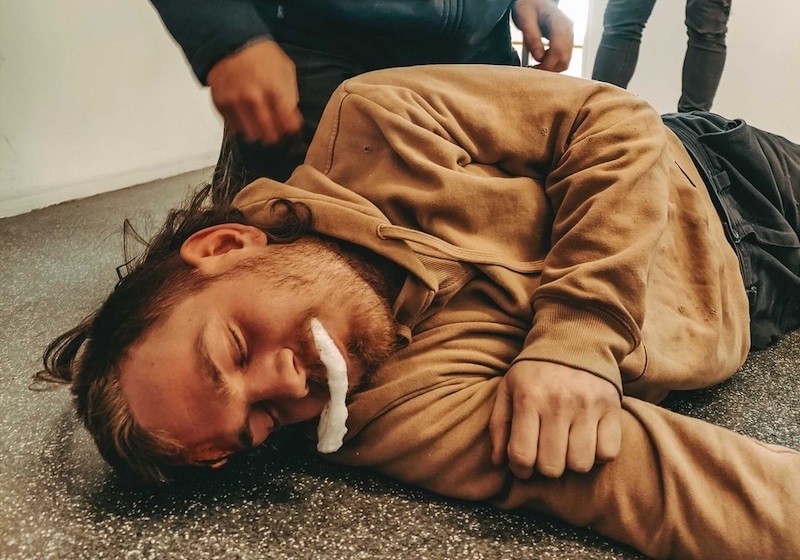
Ask yourself this question within your CPT (Close Protection Team).
Wouldn't it be appropriate to improve in this area? The personal protection officer is probably the classic, all-round talent. They should be able to do everything to act correctly in emergencies. Highly trained, equipped, and motivated. If their protectee then suffers irreparable or even fatal damage because the sporty, smart, and well-prepared protector cannot recognize an anaphylactic reaction or cannot provide emergency treatment for an incipient heart attack because they have negligently neglected their medical planning and cannot find a suitable target hospital ad hoc. A gunslinger who is a jack of all trades – and then fails on all fronts because of a supposed triviality?
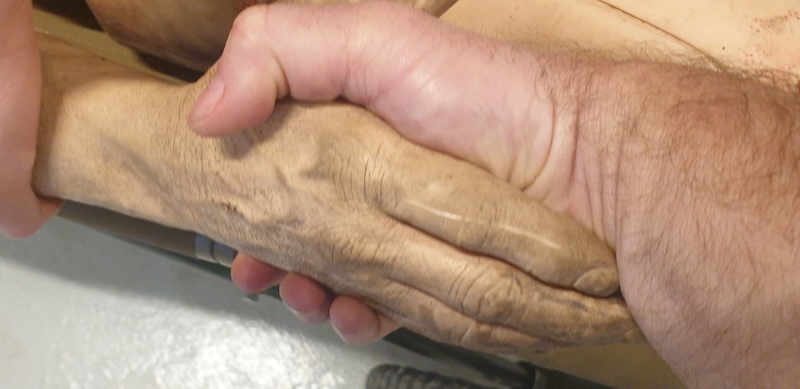
What do I want to express with this post? I want to show that there must be individually tailored training for different target groups. This applies to tactical, operational topics as well as for first aid. General courses for everyone can provide a basis, but are not sufficient for professionals. Get personalized advice and adapt your medical equipment, as well as the corresponding training, to your needs. But always make sure that improvements need to be made regularly and with specific goals in mind. First aid knowledge, once acquired, needs to be refreshed and deepened. Changing climates, infrastructure, and hazards need to be taken into account. Of course, aspects of Tactical Medicine as well.
We at Capsarius Akademie are happy to advise you on this. Contact us and discuss the next steps with us. We are very experienced and extremely flexible in solving this challenge. A great and experienced team of doctors and medics is waiting for you.
Those who want to receive the current newsletter exclusively and automatically without missing one, have to sign up HERE. CALLSIGN DOC will then arrive by email. Previous issues are available in the archive on the website of the Capsarius Akademie.
CAPSARIUS AKADEMIE on the internet: www.capsarius-akademie.com
SPARTANAT is the online magazine for Military News, Tactical Life, Gear & Reviews.
Send us your news: [email protected]
Ad
similar
Get the weekly SPARTANAT newsletter.
Your bonus: the free E-Book from SPARTANAT.


